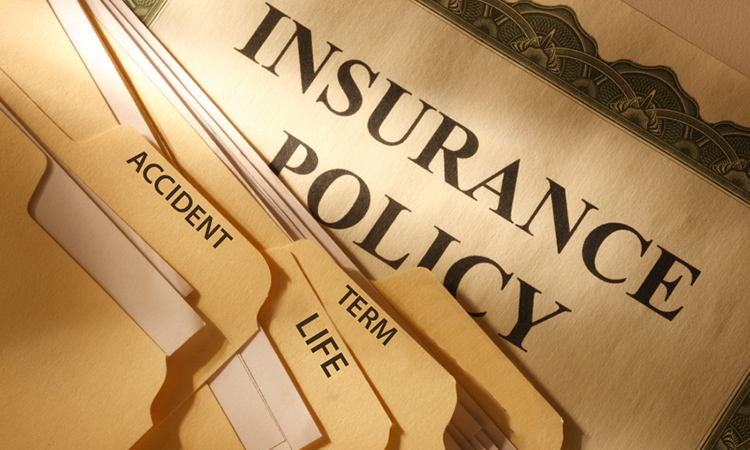Find consumer tips on everything from credit to home safety to travelling on a budget and so much more!
Big Red Flags When Buying a Home
Here are some quick and easy ways to tell if there might be an underlying issue with the home. Obviously, if you sense something might be wrong, you will need to pay an inspector (or a special service company) to investigate and confirm an issue.
Foundational
- Cracks in the driveway, foundation or sidewalks
- Drainage systems not pointing away from the house
- Yard sloping towards the house
- Standing water near the foundation
- Trees with roots close to the foundation
- Cracks in the walls
- Windows or wall corners not square
- Gaps on top of interior doors when closed
Water or Mold
- Musty smell
- Cracks around windows
- Peeling paint
- Leaking faucets, bath tubs or toilets
- Water stains on the walls
- No bathroom ventilation
- Missing tile caulk
Roof
- Ceiling stains
- Missing, cracked, curled or warped shingles
Electrical
- Lights that flicker or short-out
- Main panel condition (rusty or damaged in any way)
- Exposed wires
Plumbing
- Water stains in bathroom around plumbing
- Low water pressure
- Drains empty slowly
- Noises when you turn on the water
- Bad odor by the sink
With these tips, we hope you’ll be able to spot any big issues before your closing day. And, as always when you decide you’re ready to buy a home, don't forget your Union Plus benefits:
-
The Union Plus Mortgage Program offers competitive interest rates on a wide range of mortgage options, plus special benefits including hardship assistance for union members.
- With the Union Plus Real Estate Rewards program, you could get $500 for every $100,000 in home value if you use a real estate agent approved by SIRVA.*

*To qualify for cash back rewards (in cash back states), you must use a SIRVA-referred real estate agent. Program designed as a referral service to provide you the opportunity to select a real estate agent to meet your needs. You must evaluate the brokers, agents and their services and make selections and decisions based upon your best judgment, interest, priorities and concerns. Call 800-284-9756 or visit www.up-RealEstateRewards.com for important program details and state restrictions. Union Plus makes member feedback available. Union Plus does not endorse any User Content, or any opinion, recommendation, or advice expressed herein.
SIRVA is an independent provider of services. Union Plus is not affiliated with SIRVA and does not manage SIRVA or its programs. SIRVA is paying Union Plus for advertising services including dissemination of information about SIRVA and its programs to participating unions and their members as well as participation in Union Plus events and programs. No referral, recommendation, service representation or exclusivity requirement is intended by the Union Plus's mention or dissemination of the SIRVA name and delivery of this information to participating union members.

If you’re thinking about relocating your family to a new home, you are probably feeling a mix of emotions. Moving can be an exciting time to start fresh, but it can also come with its share of worries and stresses. One of the biggest worries is that you might move into a home and realize that there are big, costly problems with the home (that your inspector didn’t catch).
How to Set Up a Debt Repayment Plan with the IRS
But don’t worry, there’s good news. Just like making monthly payments on your credit card, you can make payments to the IRS to take care of your tax debt before they take more aggressive action.
There are a few things to keep in mind when it comes to paying the IRS.
Continue to File
Even if you can’t pay what you owe, you still need to file your taxes. Not filing can add more penalty fees on top of what you’ll be charged for paying late. Not filing your tax return on time can add an extra 5 percent to your unpaid balance every month up to a maximum 25 percent penalty. If what you owe is significant, this penalty can make it much more difficult to repay.
Don't Take Drastic Measures
Owing money to the IRS doesn’t mean you have to file bankruptcy to deal with it. Especially if what you owe it less than $10,000. Many people feel like the IRS will take aggressive action immediately and they have no other choice. That’s not the case. The IRS will first ask you to pay and offer you a few opportunities to do so. Avoiding those requests will leave them no other alternative than to go after your funds so don’t ignore them. Instead, try to work with them.
Consider a Loan
Taking out a personal loan with a low interest rate to pay off your tax bill in full may be a better option than setting up a repayment plan with the IRS. Their penalties and interest rates will be much higher and cost you more money in the long run. Plus, a loan company won’t have the ability to be as aggressive when seeking repayment.
Pay With a Credit Card
If possible, pay your bill, or at least a large amount of it, with a credit card with favorable terms. Even if you can’t pay the whole bill on your credit card, reducing what you owe will make it easier to work with the IRS. Just make sure you have a plan in place to manage the credit card portion of the debt.
Request an Installment Plan
If all else fails, you can set up an installment plan directly with the IRS. Applying for a payment plan is easy to do through the IRS website.
You have three options: short-term repayment (repay within 120 days), long-term repayment with direct debit payments (repay within 72 months), or long-term payment without direct debit payments.
Short-term repayment is for debts (penalties and interest included) of no more than $100,000 and costs nothing to set-up. Long-term repayment plans are capped at $50,000 and come with a set-up fee: $31 if you agree to monthly direct debit payments and $149 ($43 for low income participants) if you pay by another method.
Keep in mind that interest fees, just as with your credit card or a personal loan, will continue to be applied so most of your payment will go toward interest in the beginning.
Make a Compromise
If you owe back taxes and have continued to file your taxes every year, you may qualify for an Offer in Compromise. This will allow you to work with the IRS to reduce the total amount you owe and pay it off in one payment. The IRS will analyze your ability to pay based on your current employment, income, and debt. They will then work with you to settle your debt for an amount they feel is fair based on your financial circumstances.
If you’re concerned about your ability to pay any amount to the IRS, consider speaking with a certified credit counselor first. Credit counseling is free and is a helpful tool for anyone struggling to balance their income with their expenses and debts. It’s also nonprofit and unbiased, so you can feel confident that the advice you are given is in your best interests.
Union Plus Credit Counseling
Union members can get a no-obligation money and credit assessment from certified, experienced consumer credit counselors though Union Plus Credit Counseling. Powered by the non-profit Money Management International (MMI), your free session will cover a complete financial review, assistance in budgeting, advice for working with creditors, and more.

Owing money to the IRS can leave you feeling stressed and buried in debt. Having credit card debt is one thing, but the IRS wants their money and they will take steps to garnish your wages or freeze your bank accounts if they feel you’re not going to pay.
10 Foods That Support a Healthy Mind
The golden years of our lives are not called golden for nothing, and while Robert Frost warns us that “nothing gold can stay,” studies have shown that we can, in fact, take certain steps to lengthen the duration of our golden years and keep our minds sharp. In fact, genetics account for only 20-30 percent of our aging process, while lifestyle accounts for 60-70 percent, with nutrition being the most influential factor. If we make smart choices, filling our plates with smart foods, we can keep our bodies and minds resplendent throughout our golden years.
Entrees: Fish and Turkey
Fatty fish, such as salmon, herring, mackerel and sardines, are some of the most potent proteins we can consume to help support healthy brain function. Chocked full of Omega-3 fatty acids, consuming fatty fish decreases the risk of Alzheimer’s Disease. People aged 65 and older who ate fish three or more times a week had a 26 percent decline in their risk of dementia. In addition, the consumption of these fish can decrease your risk of suffering a stroke. In fact, adding these fish to your diet can also help increase your memory as you age. Because fatty fish contain the mineral selenium, consuming them may help keep your mood balanced, as well. Diets low in selenium correlate with higher instances of depression, leading researchers to surmise that maintaining a higher level of the mineral can help support mental health.
If you’re not a fan of seafood, turkey is another adequate source of selenium, proven to help boost mood. While turkey’s tryptophan content has long been infamous for causing the all-too-familiar Thanksgiving Day food coma, tryptophan is actually quite misunderstood. Instead of making you tired all on its own, it produces serotonin, an anti-depressant that helps regulate your sleep cycles. Without tryptophan, the brain cannot produce serotonin, which helps with memory, transmitting impulses between nerves, sense of well-being and mood balance.
Sides: Broccoli and Beans
Both turkey and seafood pair well with broccoli, a superfood associated with a decreased risk of Alzheimer’s, as well as with helping to maintain “crystallized intelligence,” or the skills and knowledge you have acquired over and applied throughout the span of your life. Broccoli is also a good source of lutein, a plant pigment that embeds in cell membranes and protects your neurons. The consumption of lutein helps preserve our telomeres, essentially protective caps on both ends of our chromosomes that help safeguard the genome from degradation with age.
High in protein and low in saturated fat, beans make another smart food choice for brain health. They contain folate, iron, potassium, magnesium and choline (a B Vitamin), just to name a few nutrients. Consuming beans can increase acetylcholine, a neurotransmitter that assists with maintaining involuntary bodily function. Beans can also help stabilize glucose, which your brain needs but cannot store.
Garnishes: Berries, Walnuts and Avocado
Traditionally, we think of the major food groups as including carbohydrates and starches, fruits, vegetables, proteins, dairy and sweets. The MIND diet (Mediterranean-DASH Diet Intervention for Neurodegenerative Delay) lists berries as their own, standalone food group, though fruit is not included as its own category. In a recent study, the motor skills and learning of older rats who consumed blueberry extract improved to match the ability of much younger rats, implying that people who consume blueberries may be able to reverse cognitive decline resulting from age. Berries contain anthocyanin, a phytochemical that reduces damage from free radicals, radiation and inflammation, thus also helping reduce your chances of Alzheimer’s by protecting the brain from “oxidative stress.” In addition, like broccoli, berries provide antioxidants that preserve telomeres.
Walnuts provide omega-3 fatty acids, polyunsaturated fats that are good for your heart. They also provide omega-6, Vitamin E, folate, Vitamin B6 and magnesium, all found to boost mood and decrease memory loss.
Like berries, avocados can help decrease your chance of Alzheimer’s. They contain monounsaturated fat, which lowers the bad cholesterol linked to the development of Alzheimer’s, and increases blood flow to the brain. In addition, consuming avocados helps lower blood pressure, and so also decreases risk of hypertension, a condition that often contributes to cognitive decay. In fact, lower blood pressure supports overall brain health.
Drinks: Milk and Lemonade/Fruit Juice
Milk provides Vitamin D, low levels of which are associated with depression, and Vitamin B12, a lack of which causes low levels of S-adenosylmethionine, used in the brain to process chemicals that balance mood. Milk also provides thiamine, which the body cannot produce on its own. A thiamine deficiency can cause Korsakoff’s syndrome, a condition that affects memory and balance, and can cause ataxia (lack of muscle coordination), and other symptoms.
While we’re often warned against indulging in too many sugary drinks, an occasional lemonade or fruit juice can provide us with a natural form of glucose that helps the body process sugar from carbs, and temporarily boosts memory, alertness and mental ability.
Dessert: Chocolate
If you’ve ever needed a reason to justify eating more chocolate, here it is: The Vitamin E found in dark chocolate decreases cognitive decline with age. In addition, dark chocolate contains caffeine, which improves focus and stimulates endorphin production, thus kick-starting a sense of well-being and a feeling of happiness. Along with Vitamin E and caffeine, consuming dark chocolate provides you with flavanol, an antioxidant that increases blood flow to brain.
The Smart Plate: A Meal to Power your Brain
After all this talk of food, your stomach might be growling. Here’s how you can create your own smart plate for dinner tonight. First, include a fist-sized portion of fatty fish or turkey garnished with one-quarter avocado, sliced thinly. According to Carol Sorgen’s article, “Eat Smart for a Healthier Brain,” available on WebMD, because avocados contain high levels of fat, experts recommend eating only one quarter to one half of an avocado daily. As a side, include a small portion of broccoli garnished with chopped walnuts. You can also add nuts to cereal, yogurt, desserts, and meats. The experts in Sorgen’s article recommend consuming one ounce per day. They also recommend eating half a cup of beans daily, so go ahead and add a scoop to your plate, right beside your broccoli. For dessert, enjoy half an ounce to one ounce of dark chocolate (the daily recommendation), shaved over a quarter cup of blueberries. Sorgen’s nutritionists recommend consuming one cup of fresh, frozen or freeze-dried berries a day. Oh, and don’t forget to wash it all down with a tall glass of milk!
This article is brought to you by The Hartford, provider of the Union Plus Life Insurance plans.
Group coverage is available for your family in the event of the unexpected. Learn more about valuable Life insurance benefits and union rates here.

The Hartford® is The Hartford Financial Services Group, Inc., and its subsidiaries, including issuing company Hartford Life and Accident Insurance Company. Life Insurance is underwritten by Hartford Life and Accident Insurance Company, Hartford, CT 06155.
All benefits are subject to the terms and conditions of the policy. Policies underwritten by Hartford Life and Accident Insurance Company detail exclusions, limitations, and terms under which the policies may be continued in force or discontinued. Life Form Series includes GBD-1000, GBD-1100, or state equivalent.
Your diet is an important part of your brain health, keep your mind sharp with these 10 foods.
Five Affordable Alternatives to Movie Date Nights
That seems like a lot to spend for just one evening. There has to be a better way to enjoy a date night without breaking the bank. Here are some great ideas for fun dates that you can enjoy in the afternoon or evening without blowing your budget
- Go for a bike ride. A lot of cities offer inexpensive bike rentals you can use to ride around town. Or better yet, take your own bikes downtown. This is a great way to see your city in a new way. You can travel places you can’t get to in a car. Pack a picnic and a blanket in your backpack and enjoy an afternoon outside. Or go for an evening ride to enjoy some star gazing.
- Go to a sporting event. Most major cities have amateur teams. It’s just as fun as a professional game but tickets are a lot cheaper. You can get tickets to a local game for as little as $5. Most stadiums offer snack and beer specials too. Or go to a local high school football game. The game is cheap and so are the snacks at the concession stand, but the game is full of energy and cheering.
- Have dinner with friends. Instead of meeting friends out for dinner at an expensive restaurant, invite them over for a potluck and game night. Invite two or three other couples and have everyone bring a dish to share. After dinner, enjoy a game of Pictionary, Charades, or team Monopoly.
- Go ice skating. Outdoor rinks in the winter are romantic and beautiful, and often inexpensive. You can even go skating in the summer, just find an indoor rink in your area. Many rinks offer special “date night” events with discounted pricing. After skating, curl up at home in front of the fire with some hot chocolate for a good chat.
- Go sightseeing. Most people don’t bother to check out all the sights and attractions their local area has to offer unless they have out-of-town guests to entertain. Decide to be a “visitor” in your city for a day and visit the local attractions. A quick Google search will help you find free and low-cost museums, walking tours, and other attractions to check out. Make a list of the places you want to go and print out information about them so you can be your own tour guide.
Enjoying time together doesn’t have to mean spending lots of money. There are so many options for inexpensive date nights if you just look for them. What will you do this weekend?
Union Plus Credit Counseling
Union members can get a no-obligation money and credit assessment from certified, experienced consumer credit counselors though Union Plus Credit Counseling. Powered by the non-profit Money Management International (MMI), your free session will cover a complete financial review, assistance in budgeting, advice for working with creditors, and more.

Movie date nights are expensive; ticket prices average $12-$15 per person (plus a fee if you purchase online) then there’s the snack bar. Just a soda and popcorn to share will set you back another $15 or more. For two people, a night at the movies, without dinner, will cost an average of $50-$70. If you’re going to dinner beforehand, your night out will be over $100.
Tips for Living in Your Home While It’s on the Market
Organize and Disregard
Before you put your home on the market, you should start organizing for your move. Not only will you get a head start on move day, having an organized home will help keep your house in order for showings. Do some of the heavy lifting now and disregard things you don’t think you’ll be moving. Remember that people are going to try to envision what their lives will be like in your home, so the less clutter and personal items – the better.
Store
Think about renting a storage unit in order to clear out some of the clutter from your home. If you’re not ready to get rid of things, a storage unit could be a good compromise.
Have a Plan
Work with your real estate agent to create a plan for showings. Ask that they schedule them for during certain days/times, that way you are able to clean and prep your house for those specific time slots.
Buy Storage Tubs
After you organize your home, consider having a few empty storage tubs available in your garage or a closet that can be used to hide clutter or items at a moments notice. Even if you set aside certain showing times with your realtor, there will be one-off times when a buyer won’t be able to accommodate your request.
Clean
Know that during this time, you will need to clean your house more frequently than usual. If you don’t have time to do this, you might want to consider hiring a cleaner to help you every few weeks during busy times. The goal is to keep up with it, so you don’t have to do a deep clean before every showing. Be sure kitchens, living rooms and bathrooms are cleaned well – as those spaces are very scrutinized by buyers. And above all else, try to enjoy the adventure. Even though keeping your house “show ready” can be a difficult task – the prospect of moving onto your next adventure will make it all worthwhile.
Are you in the market for buying or selling your home? Check out the Union Plus Real Estate Rewards Program. You can earn $500 cash back for every $100,000 in home value when you use a real estate agent, approved by SIRVA.

Certain state restrictions apply to the real estate cash back program. To qualify for cash back rewards (in cash back states), you must use a SIRVA-referred real estate agent. Program designed as a referral service to provide you the opportunity to select a real estate agent to meet your needs. You must evaluate the brokers, agents and their services and make selections and decisions based upon your best judgment, interest, priorities and concerns. Call 800-284-9756 or visit www.up-RealEstateRewards.com for important program details and state restrictions.

Most of us will not have the luxury of moving out of our home, while it’s on the market. Even though, marketing your home can be very disruptive to your life – keeping these tips in mind will help you make the best of a difficult situation.
Early Warning Signs You're Carrying Too Much Debt
No Savings
If you don’t have an emergency fund, or have very minimal savings, you have nothing to fall back on if you should miss a paycheck or have an unexpected expense. And if you’re living paycheck-to-paycheck, any unexpected expense can put you behind on your bills.
Stress with Unexpected Bills
Does opening the mailbox fill you with dread? Are you wondering what will be there today that you’ll need to pay for? If an unexpected bill causes a strong emotional response, like anger or fear, then your finances are headed for trouble. Having an emergency fund will help to eliminate this dread and give you a little more confidence when you go to the mailbox.
Money is Always on Your Mind
While we all have days of worrying about an upcoming expense, if your thoughts are consumed on a daily basis with worry about your finances or how you will handle your bills, you have a problem.
Hiding Purchases
Most of us are guilty of hiding a purchase from someone because we don’t want them to know we bought a new pair of shoes or something else we really didn’t need, but if this is a habit, something’s wrong. Do you hide your non-essential purchases on a regular basis? If so, it’s probably because you know you didn’t need it and you really can’t afford it so you don’t want anyone to know.
Only Making Minimum Payments
If you’re struggling to make just the minimum payment on your credit card bills or loans, there’s a problem. These types of loans are high interest and will cost you more the longer it takes to pay them off. If you can only manage the minimum payment, it’s time to look at your debt.
Using One Debt to Pay Another
It’s one thing to pay your utility bills with your credit cards to earn points, but if you’re doing it because you don’t have the cash to pay them, that’s a problem. Not only are you going further into debt, you’ll end up paying more with the interest rates on your credit card.
Your Card is Declined
If your credit or debit card is declined when you try to make a small purchase, you’re clearly in trouble. You’re maxing out your credit cards and running your bank account down to its last dollar to get by. This is a big red flag that more financial trouble is coming because it only gets worse from here. Once you’ve drained your accounts and maxed out your cards, how will you pay your bills and buy groceries?
If you can relate to any of these early warning signs that you’re carrying too much debt, it’s time to get a handle on your debt. Consider working with a debt and budget counselor or getting a second job if necessary.
Union Plus Credit Counseling
Union members can get a no-obligation money and credit assessment from certified, experienced consumer credit counselors though Union Plus Credit Counseling. Powered by the non-profit Money Management International (MMI), your free session will cover a complete financial review, assistance in budgeting, advice for working with creditors, and more.

While many people know when their finances are in significant trouble, you may not recognize the early warning signs that you’re carrying too much debt. There are signs you can look out for that will let you know that serious financial trouble is coming and it’s time to do something about it before it gets out of hand. Here are a few warning signs that you may be able to relate to:
Know the Risks Before You Invest in Cryptocurrencies
- Cryptocurrencies aren’t backed by a government or central bank. Unlike most traditional currencies, such as the dollar or yen, the value of a cryptocurrency is not tied to promises by a government or a central bank.
- If you store your cryptocurrency online, you don’t have the same protections as a bank account. Holdings in online “wallets” are not insured by the government like U.S. bank deposits are.
- A cryptocurrency’s value can change constantly and dramatically. An investment that may be worth thousands of dollars on Tuesday could be worth only hundreds on Wednesday. If the value goes down, there’s no guarantee that it will rise again.
- Nothing about cryptocurrencies makes them a foolproof investment. Just like with any investment opportunity, there are no guarantees.
- No one can guarantee you’ll make money off your investment. Anyone who promises you a guaranteed return or profit is likely scamming you. Just because the cryptocurrency is well-known or has celebrities endorsing it doesn’t mean it’s a good investment.
- Not all cryptocurrencies or the companies behind them are the same. Before you decide to invest in a cryptocurrency, look into the claims the company is making. Do an internet search with the name of the company and the cryptocurrency with words like review, scam, or complaint. Look through several pages of search results.
Originally posted by the Federal Trade Commission. All rights reserved.
It’s not just bitcoin. There are now hundreds of cryptocurrencies, which are a type of digital currency, on the market. They’ve been publicized as a fast and inexpensive way to pay online, but many are now also being marketed as investment opportunities. But before you decide to purchase cryptocurrency as an investment, here are a few things to know:
Term Life or Accidental Death Insurance — Which is Right For Me?
Simplified Issue Term Life Insurance often has age-banded premium rates that change when you reach the next age bracket. Acceptance into the plan is based on a few quick health questions, but no medical exams or tests. For the first few years only deaths due to an accident may be covered. But once through the exclusionary period, all causes of deaths could be covered.
Term Life Insurance would be most valuable if you have a lot of recurring payments; homes, cars, education, all require financial resources and planning. Term Life can offer higher coverage levels that helps protect the lifestyle you are building with your family. In the event of your passing, your family can use the money from the insurance in any way they need.
Accidental Death Insurance may be a better choice for people with fewer obligations; houses paid off and an empty nest, or people just starting out on their own. Accidental Death policies are usually guaranteed issue – simply enroll and pay your premium to get coverage – because they only pay benefits for death due to a covered accident. The lower coverage amounts – and premium rates – can still give you the additional peace of mind knowing that you will not leave unpaid debt or expenses if the unexpected happens. And, here again, your beneficiaries can use the cash benefit in any way they need.
Considering insurance as part of your financial planning makes sense no matter where you are in your life. Helping to protect your family and assets with insurance can give your family more financial security and give you more peace of mind.
Go to www.unionplusinsurance.com for more information about the insurance offers available to you as a union member.

Underwritten by Hartford Life and Accident Insurance Company, Hartford, CT 06155. All benefits are subject to the terms and conditions of the policy. Policies underwritten by Hartford Life and Accident Insurance Company detail exclusions, limitations, reduction of benefits and terms under which the policies may be continued in force or discontinued. Life Form Series includes GBD-1000, GDB-1100 or state equivalent. Accident Form Series includes 7582, PA-5427, or state equivalent.
0318TVA
Choosing the right insurance products can be challenging – especially because many of us do not like to think about needing insurance at all! But insurance can be an important part of financial planning for any family. Understanding the different types of insurance available to you is an important part of deciding which option is best.
Why Consolidating Debt Can Save You Time and Money
These loans are a good option for people looking to decrease their number of monthly payments, lower their interest rates and achieve a less-stressful financial future. Here are a few commonly asked questions that might help you determine if a debt consolidation loan is the right option for you.
What is the difference between a secured loan and an unsecured loan?
Secured loans, such as a mortgage or car loan, require you to put collateral down to cover the repayment of the loan if you are unable to make your monthly payments. Unlike a secured loan, an unsecured loan doesn’t require collateral, making it a good solution for those looking to consolidate debt quickly and easily.
Should I pick a fixed rate or a variable rate loan?
A variable rate, like most credit cards, is one that is likely to change (increase) over time, causing your monthly payments to also increase. You may receive a lower rate with a variable rate loan, but because it is not guaranteed to remain the same over time, it’s a potentially riskier option.
A fixed rate is one that will remain the same for the term of the loan. With a fixed rate, you won’t have to worry or wonder if your rate might go up – and that means you’ll always know exactly how much your monthly payment is. No surprises.
How long will it take to pay an unsecured loan off?
Unlike credit cards, loans have a pre-determined length of repayment. This means that you know exactly when your loan is paid off and when you’ll be out of debt. You usually have the flexibility of determining the length of repayment based on monthly payment options. Most lenders allow you to choose the due date of your monthly payment so you can prioritize bills to fit your budget.
Are there fees associated with an unsecured debt consolidation loan?
Some lenders charge an origination fee that can range from 3-6% (or more) of the loan amount you consolidate. For example, a $15,000 loan with a 5% origination fee would result in a $750 origination fee, in addition to your loan amount. Loans without origination fees allow you to save on upfront costs.
Unlike many credit cards, most loans do not charge an annual fee. This allows for even more savings when consolidating credit cards into an unsecured loan.
Is an unsecured loan right for me?
A loan can help you consolidate revolving debts so that you can have flexibility in your budget and achieve your financial goals. They are a good option for people who want to find a solution for outstanding debt and stop wasting money on higher-interest credit card balances. When applying, lenders will review your credit history and look for things such as bankruptcy and on-time payment history. Qualification will vary based on the lender you choose.
Does Union Plus have a solution for me?
Yes! If you’re interested in an unsecured loan, click here to learn more or apply for the Union Plus® Personal Loan so you can start saving time and money today!
Do you have several credit cards that you’ve acquired over time, each with its own interest rate, payment due date and balance? Have you ever considered a loan for debt consolidation?
It Looks Like You Have a Cavity
Cavities are likely to form the more sugar we snack on. Our mouths are full of bacteria, some helpful, some malevolent, and the latter bacteria feeds on sugars, forming acid that eats away at our teeth. Like your dentist always reminds you, daily brushing (with a toothpaste that has fluoride in it) and flossing can help prevent the buildup of sugar and cavities.
In the earliest stages of a cavity, it’s entirely likely that you’ll feel nothing, as the first layer of your teeth is simply enamel, which has no nerves and thus no sensitivity. The good news is that this stage of a cavity can be reversed. Proper oral hygiene can repair the enamel, stopping that pesky cavity in its tracks.
Unfortunately, some cavities persevere, which leads to more pronounced symptoms. The classic one is, of course, a toothache, especially when you eat something sweet. Remember how the bad bacteria feeds on sugar? Well, coating an already decaying tooth in more sugar produces more acid, which will eventually dissolve all the enamel and make its way to your tooth’s sensitive nerve endings, causing discomfort.
This expanding cavity can also lead to other symptoms, such as a bad taste in your mouth or bad breath that just won’t go away. It’s possible to feel or even see a more advanced cavity – you may notice a dark spot on your tooth, or a mysterious hole. Any of these indications are cause to see a dentists as soon as possible.
Whatever stage a cavity is in, it’s certainly a nuisance, especially once your dentist hands you your bill. The Union Plus Dental Discount Plan can help you save on your next dental visit.
Plus, use code UPGC10* when you sign up for any annual Dental Discount Plan and we’ll send you a $10 Starbucks gift card!
Search for a participating dentist near you and schedule an appointment today!

*You must purchase an annual plan and be a member of the Union Plus Dental Discount Plan for 30 days in order to receive the gift card.
It’s the phrase every patient reclining in the dentist’s chair dreads. Was there something you could have done to prevent this?